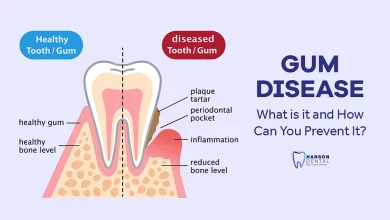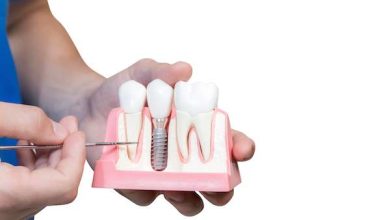Should Gums Bleed During Dental Cleaning? Be Careful!

Gums may bleed during dental cleaning, which is usually a result of inflammation caused by gum disease. Regular dental cleanings can help address the underlying issue and improve gum health.
Maintaining optimal oral health involves more than just brushing and flossing regularly. Regular dental cleanings are an essential part of preventing oral problems and maintaining healthy teeth and gums. However, many people wonder if it is normal for their gums to bleed during these cleanings.
We will address this common concern and provide a clear understanding of why gums may bleed during dental cleanings. We will also discuss the importance of regular dental cleanings in maintaining optimal oral health. By the end, you will have a better understanding of gum bleeding during dental cleanings and how it relates to your overall oral health.

Credit: southgablesdental.com
Exploring The Causes Of Bleeding Gums During Dental Cleaning
Should gums bleed during dental cleaning? Bleeding gums during dental cleaning can be a sign of underlying issues. Understanding the importance of healthy gums is crucial for maintaining overall oral health.
There are several factors that contribute to gum bleeding during dental cleaning. Poor oral hygiene habits, such as insufficient brushing and flossing, can lead to gum inflammation. Gingivitis and periodontal disease are also common causes of gum bleeding. These conditions result from the buildup of plaque and tartar, which irritate the gums.
Additionally, certain medications and health conditions can increase the risk of bleeding gums during dental cleaning. Blood-thinning medications and chronic diseases, such as diabetes, can affect gum health.
It is essential to recognize the signs of gum bleeding during dental cleaning. Visual indications include swollen and red gums, as well as bleeding. Sensitivity and discomfort while brushing or flossing may also indicate gum bleeding. Persistent bleeding that does not subside warrants attention.
The Significance Of Addressing Bleeding Gums During Dental Cleaning
When gums bleed during dental cleaning, it should not be ignored as it could indicate an underlying issue. Dental cleaning plays a significant role in maintaining gum health. It helps remove plaque and tartar buildup, reducing the risk of gum infections. Ignoring gum bleeding can have potential consequences, including gum infections and tooth loss.
Gum infections can occur when bacteria build up around the gumline, leading to inflammation and bleeding. If left untreated, gum infections can progress to periodontitis, a more severe form of gum disease that can cause tooth loss. Additionally, poor gum health has been linked to various systemic health conditions, such as heart disease and diabetes.
Addressing bleeding gums during dental cleaning is crucial to prevent further complications and maintain overall health. If you experience gum bleeding during dental cleanings, it is important to discuss it with your dentist and follow their recommended treatment plan.
Tips For Preventing Gum Bleeding During Dental Cleaning
Should Gums Bleed During Dental Cleaning?
Tips for Preventing Gum Bleeding During Dental Cleaning:
Maintaining a Consistent Oral Hygiene Routine: To prevent gum bleeding, it is crucial to maintain a regular oral hygiene routine. This includes proper brushing techniques to remove plaque and bacteria. It is also important to floss daily to remove food particles and plaque from between the teeth and along the gumline. Incorporating a mouthwash can also help reduce bacteria in the mouth.
Regular Dental Check-ups and Cleanings: Regular dental check-ups and cleanings are essential for preventing gum bleeding. These visits allow the dentist to detect early signs of gum disease or gingivitis. Professional cleanings help remove tartar and plaque buildup that cannot be removed by regular brushing and flossing.
Adopting a Balanced Diet for Gum Health: A balanced diet plays a significant role in gum health. Consuming nutrients such as vitamin C, vitamin D, and calcium can contribute to gum strength. Avoiding sugary and acidic foods can help prevent gum inflammation and bleeding.
Seeking Professional Advice and Treatment: If you experience gum bleeding during dental cleaning or have persistent gum issues, it is important to seek professional advice and treatment from a dentist. A dentist can provide guidance on proper oral care techniques and recommend suitable treatment options for gingivitis and gum disease.
| Available Treatment Options for Gingivitis and Gum Disease: |
|---|
| – Scaling and root planing |
| – Antibiotics |
| – Periodontal surgery |
Frequently Asked Questions On Should Gums Bleed During Dental Cleaning?
Do Healthy Gums Bleed During Dental Cleaning?
Healthy gums should not bleed during dental cleaning. Bleeding gums may be a sign of gum disease or other oral health issues. Regular dental cleanings and proper oral hygiene can help prevent gum bleeding.
Is It Normal To Bleed During A Dental Cleaning?
Bleeding during dental cleaning is common and often caused by inflamed gums. Proper oral hygiene and regular visits to the dentist can help prevent bleeding. If bleeding persists or is excessive, consult your dentist for further evaluation.
Is It Bad If Your Gums Bleed At The Dentist?
Bleeding gums during a dental visit is common and may not be a bad thing. It can be a result of sensitive or inflamed gums due to cleaning or probing. It’s important to inform the dentist, who can recommend proper treatment and provide tips for maintaining oral health.
Why Do Gums Bleed When Cleaning Teeth?
Gums bleed during teeth cleaning due to inflammation caused by plaque buildup. Plaque contains bacteria that irritate the gums, leading to swelling and bleeding. Regular brushing and flossing, along with professional cleanings, can prevent gum bleeding and maintain oral health.
Conclusion
It is not normal for gums to bleed during dental cleaning. Bleeding gums can indicate an underlying issue such as gum disease or improper oral hygiene. If you experience bleeding gums, it is important to consult your dentist to determine the cause and address any potential problems.
Remember, maintaining good oral health is crucial for overall well-being.






One Comment